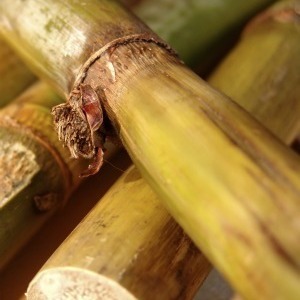Ceres begins field evaluations of its biotech traits in sugarcane




June 13, 2014
BY Ceres Inc.
Ceres Inc., an agricultural biotechnology and seed company, will evaluate a number of its biotech traits in sugarcane in South America. Plantings were recently completed and preliminary performance observations will be available by the end of the year. Ceres expects to receive sugar yield results in the second half of 2015 when the first growing cycle is completed. Sugarcane provides an additional out-licensing opportunity for traits that the company is developing for its own use in sorghum and other energy crops.
The pilot-scale field evaluations include a number of Ceres’ leading traits for high sugar and drought tolerance. According to the company, these first field evaluations in sugarcane are designed to measure the performance of the traits in leading commercial varieties, with a goal of advancing the best plants for broader evaluation. Evaluations will be managed by a South American sugarcane developer.
Roger Pennell, PhD, vice president of trait development for Ceres, said that the company’s biotech traits could provide significant benefits to sugarcane production. Higher sugar yields and greater resilience to drought and other stress conditions would not only increase output, but also lower production costs.
Advertisement
Advertisement
“If our greenhouse results are confirmed in the field, plants with Ceres’ traits could allow growers to leapfrog ahead of the incremental gains that have been made through plant breeding alone,” said Pennell. “Plant breeding is particularly cumbersome in sugarcane. The plants have long growing cycles and common breeding processes are difficult to implement due to limitations in how and when sugarcane plants produce pollen and flowers.”
Walter Nelson, Ceres vice president of product development, said that the company intends to work with mills and growers in South America and other sugarcane production areas once it has the field data it needs to determine more definitively the commercial value of these traits in sugarcane. Commercialization timelines will depend primarily on trial results and the regulatory review process in various markets.
“We intend our field evaluations to be a proving ground for a broader rollout of these traits in sugarcane varieties developed for multiple areas,” said Nelson.
Advertisement
Advertisement
Ceres has previously out-licensed its genetic technology and genes to other seed companies for use in rice, corn, soybean and sugar beets, among other crops. Ceres is focused on genes that have shown large, clear increases in performance, and whose benefits are maintained across multiple species. The company’s field evaluations of its biotech traits in multiple crops have largely confirmed previous results obtained in greenhouse and laboratory settings.
According to the U.N. Food and Agriculture Organization, 62 million acres (25 million hectares) of sugarcane were harvested worldwide in 2012, including 27 million acres (11 million hectares) in South America.
Related Stories
The U.S. Department of Energy Bioenergy Technologies Office (BETO) announced up to $23 million in funding to support research and development (R&D) of domestic chemicals and fuels from biomass and waste resources.
The U.S. DOE has announced its intent to issue funding to support high-impact research and development (R&D) projects in two priority areas: sustainable propane and renewable chemicals and algal system cultivation and preprocessing.
Sens. Sherrod Brown, D-Ohio, and Pete Ricketts, R-Neb., in August introduced the Renewable Chemicals Act, a bill that aims to create a tax credit to support the production of biobased chemicals.
The Chemical Catalysis for Bioenergy Consortium, a consortium of the U.S. DOE’s Bioenergy Technologies Office, has launched an effort that aims to gather community input on the development of new biomass processing facilities.
USDA on March 8 celebrated the second annual National Biobased Products Day, a celebration to raise public awareness of biobased products, their benefits and their contributions to the U.S. economy and rural communities.
Upcoming Events










